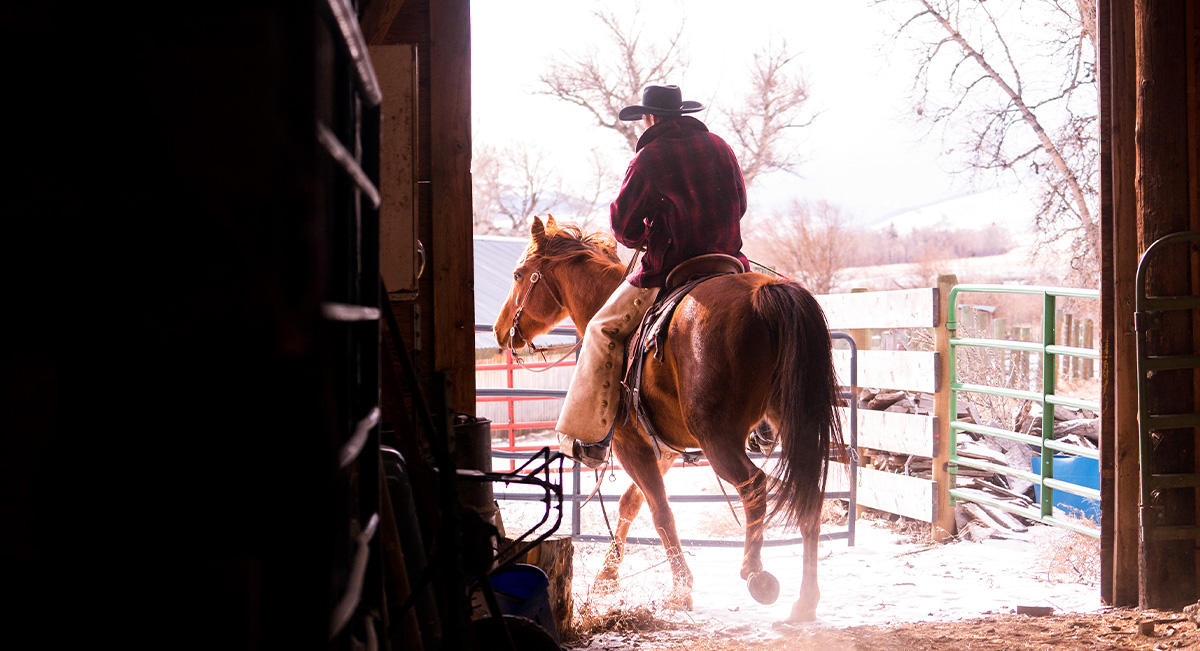Getting Your Horse Ready for Colder Weather
October 2, 2022
Fall is just around the corner. As the weather gets colder and we get busier, the chores tend to pile up. Sometimes things get skipped altogether. It happens to the best of us. But if you’re a horse owner, there are a few fall tips you should keep at the top of your to-do list.
Keep a Deworming and Vaccination Schedule
As it cools parasites become more active, not less. This can cause problems as horses shed the parasites in their manure. Proper deworming is the key to reducing the problem and maintaining your horse’s health (as well as the health of your other horses). Ask your veterinarian about deworming.
Your veterinarian will also share insights into your horse’s proper vaccination schedule. Of course, when to vaccinate is totally up to you. One thing to keep in mind when considering a vaccination is the risk of your horse contracting the disease (including the age and health of your animal).
Give Shelter
Horses know when to find shelter or huddle together to decrease heat loss. Additionally, using horse blankets or sheets can be a great way to keep your animals warm in the fall. But, by providing adequate shelter from the elements, you’ll help your equine conserve up to 20% more body heat – even if it’s just a shed.
If you put your horse in a barn or stall, but sure to check for excessive drafts and dampness. The most likely culprits for either are barn doors, windows, and clogged gutters. Be sure to add more bedding to stalls for further insulation from the floor or ground.
Exercise Your Equine
It’s important to maintain at least some light exercise for your horse, even in the colder weather. Most veterinarians agree that stabled horses should get a 30-minute workout every day for proper health.
Monitor Food and Water
As the weather gets colder, it’s possible you’ll want to supplement their usual food with cubes and pellet feed. Precondition your horse to this diet in the fall to get them ready for the winter months.
Coastal tip: As temperatures decrease, your horse will require more feed. Give 2% more feed per degree as the temperature drops below 5º Fahrenheit.
Water can also be an issue in the winter, especially in areas of the Northwest that get a lot of snow or regularly experience freezing temperatures. Insulating troughs and exposed pipes in the fall can help reduce frozen water supplies in the winter. Additionally, installing stock-tank de-icers and heated hoses can help control ice in freezing temperatures. The goal is to keep your horse’s water between 45 and 65º.
Coastal tip: Have an extra basketball or football around the homestead? Add it to your horse’s trough to keep the top of the water from freezing in modernly cold temperatures.
Watch Your Horse’s Hooves
Hooves need routine trimming and check-ups year-round. Try to keep your equine on a regular schedule with your farrier, and check out our guide to changing horseshoes and hoof care.
Coastal Cares about Your Equine
You’ll find a full line of vaccines and wormer aisles of saddles, tack, stock-tank de-icers, heated hoses, and hoof care products. Stop by your West Coast-owned and operated Coastal today and stock up before fall.
